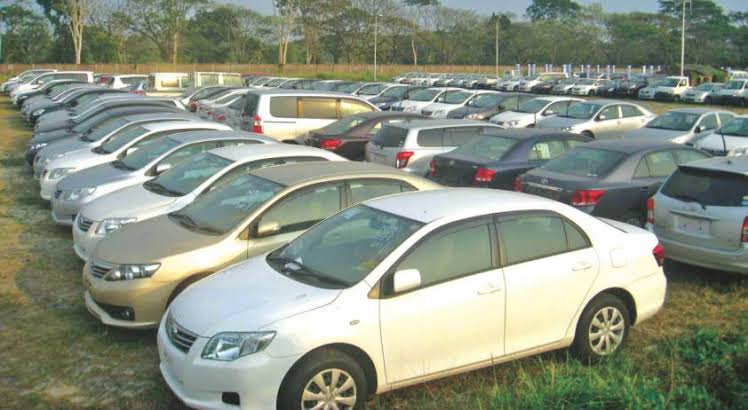Abu Taher Bappa
Published:2020-03-20 15:33:21 BdST
Withdraw yellow book-based duty on reconditioned car: Barvida
FT ONLINE
Traders of reconditioned cars in Bangladesh have demanded that the duty for importing these vehicles be based on the price on the invoice instead of what is quoted on the yellow book – to boost its import.
Reconditioned cars make 85 percent of vehicles in Bangladesh.
Despite the huge demand for these cars in this emerging economy, however, import of such vehicles has continued to slide for the past two years because of the duty structure, said the traders.
The Bangladesh Reconditioned Vehicles Importers and Dealers Association (Barvida) believes the import of these cars will double if the Custom House drops duty imposition based on the price quoted in the yellow book.
The association came up with the demand during a pre-budget meeting with the National Board of Revenue (NBR) on Thursday. NBR Chairman Abu Hena Md Rahmatul Muneem presided over the discussion.
Reconditioned car imports in Bangladesh dropped around 45 percent in the previous fiscal year and another 31 percent in the first six months of the current fiscal year, Barvida told the revenue board.
It feared that the government will lose a huge chunk of revenue and the ongoing chaos in the transport sector will also intensify if the downfall continues.
"Bangladesh began importing reconditioned cars, jeeps, station wagons, microbuses, vans, pick-up trucks, coasters, minibuses and trucks from Japan in 1980. These imported vehicles became very popular in the country due to their affordable prices, durability and suitability," said Barvida President Abdul Haque.
Bangladeshi businessmen usually import five-year-old vehicles as reconditioned units. There are around 1,000 businessmen involved and more than Tk20,000 crore is invested in the sector.
Around 24,000 vehicles were imported in the fiscal year 2017-18.
However, Barvida claimed a change in the duty structure has slashed their import to an alarming level, said Abdul Haque.
"The import of reconditioned vehicles has almost halved in the fiscal year 2018-19, dropping to 12,502 units. The situation has further worsened in this fiscal year," he added.
The yellow book price is the international yardstick for car prices issued by the Japan Auto Appraisal Institute, an agency of Japan's Ministry of Economy, Trade and Industry.
Referring to the duty structure, the Barvida president said the discriminatory customs valuation system for imposing duty on reconditioned cars is a major issue in this sector. The Custom House uses the yellow book price of reconditioned cars imported from Japan to impose duty.
The authorities should impose duty on reconditioned cars using the price on the invoice as the basis – instead of the yellow book price, said Haque.
The association also demanded redefining reconditioned cars on the basis of their engine capacity and vehicle type.
NBR Chairman Abu Hena Rahmatul Muneem assured Barvida leaders that they would consider their proposals.
Previously, the Bangladesh Ceramic Manufacturers and Exporters Association (BCMEA) sat with the revenue board officials.
The association's president Sirajul Islam Mollah demanded adjustment of moisture level and relieving import duty on ceramic raw material.
Ceramic manufacturers also asked the NBR to update the minimum tariff to tackle duty evasion through under-invoicing. They sought relieving of 15 percent supplementary duty on local tiles manufacturing and readjusting import duty on ceramic products.
Unauthorized use or reproduction of The Finance Today content for commercial purposes is strictly prohibited.


